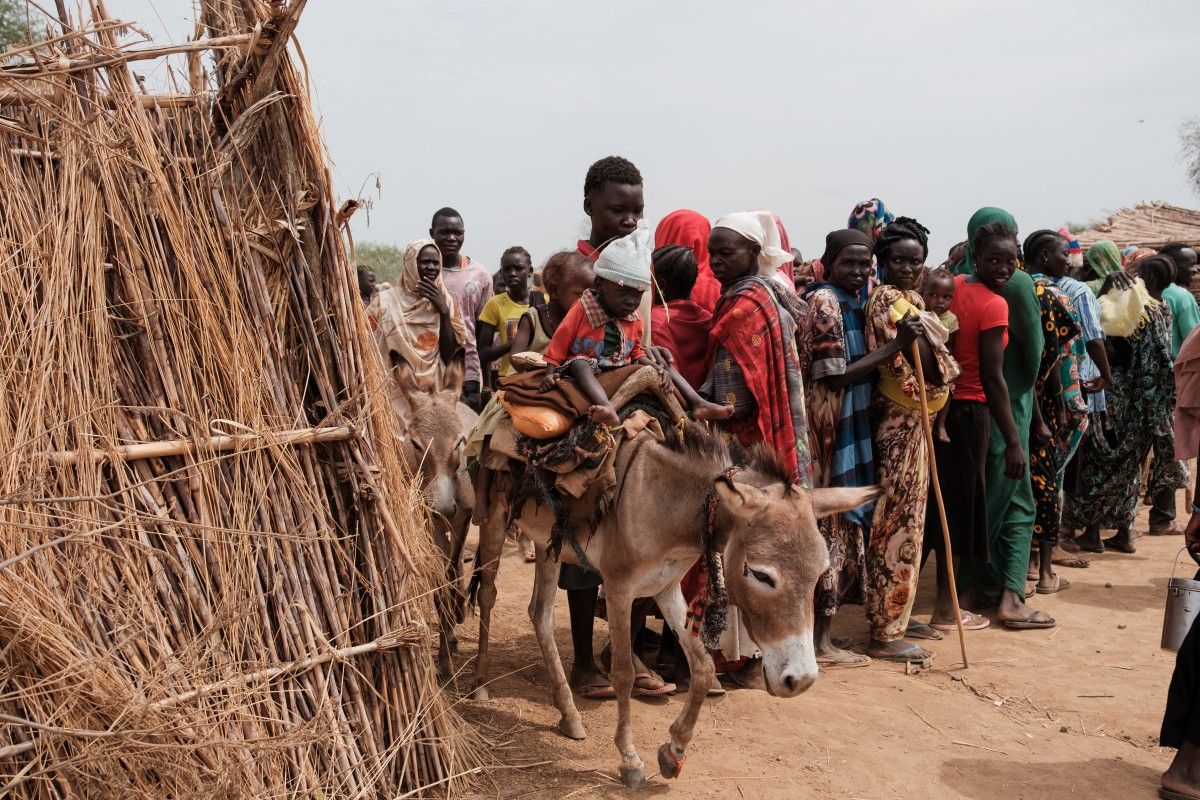
In Sudan, aspiring female filmmakers document resilience amidst war. Through storytelling using smartphones, they craft narratives of hope and resistance, empowering displaced women and children while ushering in a new generation of cinematic voices.
Amid over a year and a half of war, aspiring female filmmakers in Sudan are capturing stories of resilience and hope with their smartphones. This initiative is part of a project designed to pave the way for a new generation of filmmakers.
The film Ana Hona (“I Am Here”) follows Randa El-Taher and her friend Bekheita Abdallah, who lead the Talking Hands project. This initiative supports displaced women and deaf children affected by the ongoing war.
Since April 2023, Sudan has been engulfed in a power struggle that has claimed tens of thousands of lives, displaced millions, and devastated an already fragile infrastructure in one of the world’s poorest countries.
Directed by Eithar Khairy, 28, Ana Hona depicts a world where deaf women and children are no longer marginalized. For Khairy, a former physician turned filmmaker, the experience has been "challenging but incredibly enriching."
The project provides "a safe space for children to play (...) and learn," explains Ms. Taher, a deaf instructor who communicates with her students using sign language.
Ana Hona is one of three short films produced by a group of 11 amateur Sudanese filmmakers trained in Port Sudan by Mohamed Fawi, a 35-year-old director. Fawi spearheads the Cinemat Banat (Cinema for Girls) project, which aims to give Sudanese women a voice in storytelling.
"After the conflict broke out, I felt compelled to continue my project in Sudan," Fawi shared with AFP.
The program has equipped participants with skills ranging from screenwriting and directing to post-production, all using their most accessible tool—smartphones.
"A Model of Peaceful Coexistence"
Fleeing Khartoum, where clashes between the regular army and the paramilitary Rapid Support Forces (RSF) rage on, Fawi relocated to Port Sudan. The city has become the de facto government seat since authorities were ousted from the capital. "Having lost our equipment in Khartoum, smartphones were our only option," he explains.
One of the documentaries, Toknan (“Knowledge”), directed by Areej Hussein, 26, follows Beja women in eastern Sudan learning to read, write, and craft incense, perfumes, and embroidered clothing. These women also use social media to market their creations.
In a classroom, teacher Nafisa Ahmad calmly but firmly guides her students toward the promise of a brighter future. "Education can open doors and help us escape the confinement of war," she explains, as she combats illiteracy among women in her community.
Photographer Tasabih Hussein, 22, recounts the filmmaking process: "We filmed 32 hours of footage over seven days, then condensed it into 18 minutes."
The third film, Oumm Al Fouqara (“Mother of the Poor”), portrays a woman transforming a Sufi center on Port Sudan's outskirts into a refuge for displaced individuals. Directed by Zaïnab Alfadel, 29, the film highlights how the center doubles as a cultural hub, with traditional dances reviving a sense of identity and belonging. "It’s a model of peaceful coexistence," says Alfadel, a chemical engineer by training.
"This Is Just the Beginning"
Before the war, Sudanese cinema was gaining international recognition with films like You Will Die at Twenty by Amjad Abu Alala, selected for the 2020 Oscars, and Goodbye Julia by Mohamed Kordofani, showcased at Cannes.
For Fawi, the success of his project lies in the determination of its participants. "Normally, producing a documentary takes over a year, but these women managed to create theirs in just a few months," he notes with pride, adding that they are eager to continue filmmaking.
Fawi plans to launch a second training series for aspiring female filmmakers, hoping to inspire a new wave of storytellers in Sudan. "This is just the beginning," he asserts.
With AFP



Comments